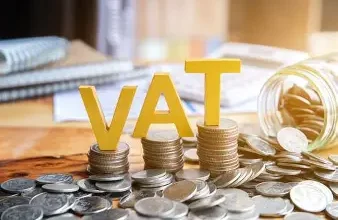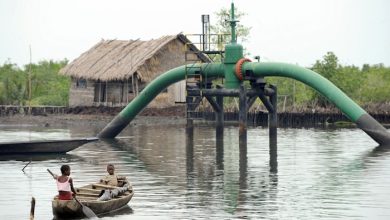Seplat Energy posts N3.4tn revenue in 9 months

Seplat Energy Plc, one of Nigeria’s leading indigenous energy companies, has announced an impressive financial performance for the first nine months of 2025, reporting revenue of N3.36 trillion, a more than threefold increase compared to N1.07 trillion in the corresponding period of 2024.
The dual-listed company on the Nigerian Exchange (NGX) and the London Stock Exchange (LSE) disclosed this in its unaudited financial report released on Thursday.
The firm’s gross profit surged to N1.36 trillion, up from N531.5 billion recorded a year earlier. Operating profit followed a similar upward trajectory, climbing to N1.10 trillion from N411.3 billion in 2024.
Cash generated from operations rose sharply to N2.15 trillion, representing a year-on-year increase of over 239 per cent.
Earnings before interest, taxes, depreciation, and amortisation (EBITDA) also improved significantly to N1.72 trillion, compared with N573.4 billion in the same period of the previous year.
Reflecting its strong performance, Seplat declared a third-quarter dividend of 7.5 US cents per share comprising a base dividend of 5.0 cents and a special dividend of 2.5 cents.
This marked a 63 per cent increase quarter-on-quarter and more than 100 per cent growth year-on-year.
Seplat reported an average daily production of 135,636 barrels of oil equivalent per day (boepd) between January and September 2025.
This represents a substantial 185 per cent increase compared to 47,525 boepd in the same period last year.
The company attributed the remarkable growth to improved output from its onshore assets, stronger offshore operations, and the reactivation of idle wells, which collectively added about 33,400 barrels per day to gross production capacity.
During the review period, Seplat achieved a milestone with the sale of its first Liquefied Petroleum Gas (LPG) cargo to the domestic market, a move that supports Nigeria’s drive for cleaner energy and improved access to cooking gas.
It also reaffirmed that construction of the ANOH gas plant remained on schedule, with first gas expected in the final quarter of 2025.
In its sustainability report, Seplat announced a 21 per cent reduction in carbon emissions intensity across its onshore assets, lowering it to 25.2 kilograms of CO₂ per barrel of oil equivalent.
The company reiterated its commitment to ending routine gas flaring by the end of 2025 in line with its decarbonisation goals.
Seplat also maintained its unit operating cost at $14.1 per barrel of oil equivalent, staying within the projected range of $14–$15.
As of September 2025, Seplat reported a strong cash position of $579.8 million, while its net debt fell by 43 per cent to $386 million, down from $676 million in the previous quarter.
The company confirmed that it had successfully refinanced several of its key financial obligations, including repayment of its Westport senior reserve-based loan and full settlement of a $100 million revolving credit facility.
Its $350 million revolving credit line remained undrawn and fully available.
Looking ahead, Seplat adjusted its full-year production guidance to between 130,000 and 140,000 boepd, with capital expenditure projected at $270 million to $290 million.
Cost guidance remained unchanged at $14 to $15 per barrel of oil equivalent.
Commenting on the results, Seplat Energy’s Chief Executive Officer, Roger Brown, expressed confidence in the company’s long-term strategy and growth trajectory.
“At our Capital Markets Day in September, we set out an ambitious medium-term vision aimed at achieving 200,000 barrels of oil equivalent per day and distributing $1 billion in cumulative dividends by 2030,” Brown said.
“As we approach the first anniversary of the MPNU acquisition, these results demonstrate our ability to operate at scale and deliver sustained value for our shareholders,” he added.
According to Brown, the company has maintained robust cash generation exceeding $1 billion after-tax and achieved a net debt-to-EBITDA ratio of just 0.27 times, well below target levels.
He further revealed that Seplat is making “significant progress” towards eliminating routine flaring onshore before the end of the year and expects to complete the Petroleum Industry Act (PIA) conversion process for its onshore business “imminently.”
“These achievements position Seplat Energy as a stronger, more resilient, and sustainable company as we continue to deliver on our 2030 growth roadmap,” Brown said.



